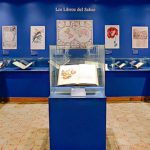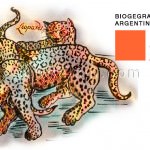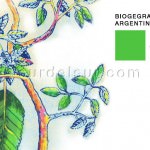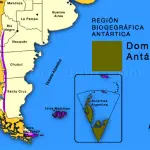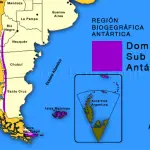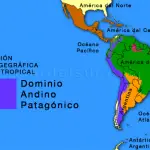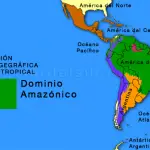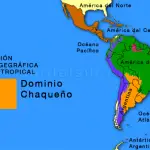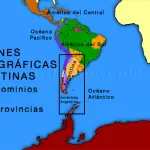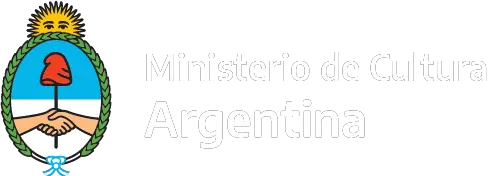Fundación Miguel Lillo was created as a consequence of the legacy of the scholar and philantropist Dr. Miguel Lillo, which was accepted by the National State in all its terms, as per Decree No. 12.935 and 14.729/46, unanimously ratified by the Honorable National Congress as per 1947 Act No. 12.935.
Origin Miguel Lillo Foundation
Dr. Miguel Lillo entrusted 10 remarkable personalities of Tucumán scientific and cultural milieu belonging the so called Centennial Generation with the management of his legacy. They would constitute, ad honorem and for life, an Advisory Commission. Each one was allowed to name his own successor and this procedure is still followed nowadays.
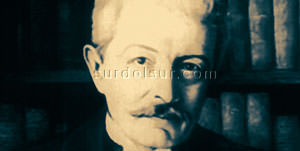
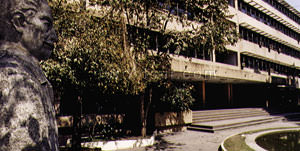
Scientific Research
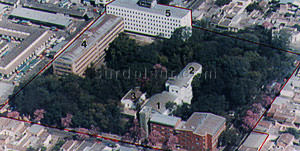
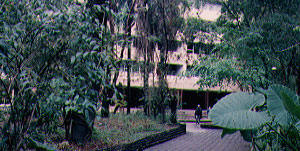
One hundred and forty two highly qualified researchers and technicians developed studies in areas such as Zoology, Botany, Geology and Bacteriology, both pure and applied, in the framework of 16 institutes belonging to Fundación Miguel Lillo, 5 of them through CONICET agreements, including CIRPON, CEVEG, CIRGEO, CEFOBI and CERELA, which developed the biotic milk, a product declared of worldwide interest by the United Nations.
This task is undertaken by 89 employees who work for the maintenance and management of collections, libraries, printing press, data center, administration and general services, and the activities are developed in premises covering 25000 m2 (6 acres).
Among the staff are researchers distinguished by top centers, both at a national and an international level, and the Foundation, as an institution, was granted the Humboldt Medal of the German Government, the Platinum Konex Award, the Magnus Award, the Gold Medal of the National Academy of Agronomy and the Córdoba National Academy of Law in view of its relentless fight for the defense of nature, among others.
Several outstanding personalities of the scientific and cultural world are Honorary Members of Fundación Miguel Lillo, some of the most outstanding names being Nobel Prize winners Bernardo Housay, Luis F. Leloir and Octavio Paz.
Preservation of Latin American Nature
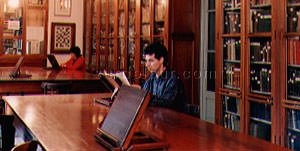
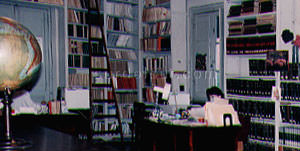
Since its inception, Fundación Miguel Lillo has developed a task based on the Preservation of Nature, anticipating the global environmental crisis currently affecting the world. Some of the results of the work carried out by its staff are the Public Reservation of La Florida (Tucumán), the native Flora and Fauna Reservation of Olaroz, for the protection of vicuñas (Jujuy), the project of Aconquija National Park (under discussion in the Honorable National Congress) and the project of the National Park in the region of Ojos del Salado Volcano. Surveys carried out in the Foundation were also used as the basis for the creation of other protected areas such as the National Park Baritú and Calilegua.
In this field, the staff of Fundación Miguel Lillo has transcended the Argentine boundaries, providing assessment about the protection of the Amazonian Basin (in an area including 9 countries), the regions of Xingú and Irirí rivers (Brasil) and the Amboró and Noel Kempff Mercado National Parks and the reservations of Tariquía, Sama and Sajama, in Bolivia.
Moreover, the foundation staff advises several international institutions on Latin America-related subjects, among which are Wetlands International, Wetlands for the Americas, Ducks Unlimited, Buró International for the study of aquatic birds and the humid soils (IWRB), Biodiversity Support Program, World Wildlife Found, Convention of Bonn, Birdlife International, Partners in flight -USDA Forest Service, hemispherical Network for beach birds, National Fish and Wildlife Foundation, The Pew Charitable Trust, W. Alton Jones Foundation, MacArtur Foundation, FUNDECHA, DAPTF and others.
Argentine Cultural Assets
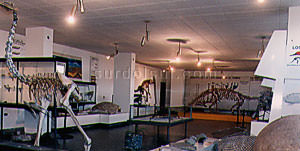
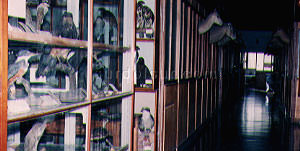
Fundación Miguel Lillo has generated and is the depositary of a significant part of the Argentine cultural assets.
Shipton Bird Collection. Zoology area (4th floor). Fundación Miguel Lillo – Tucumán, Argentina -Its scientific collections, whose quality has been worldwide recognized as an international standards of comparison include around 3,000,000 plants and animals (both fossile and contemporary). Such collections are daily enriched through the continuous work of the staff and are a permanent source of reference for Argentine and foreign researchers.
The report Global Biodiversity, by the International Union for the Preservation of Nature, ranks them among the 5 most important ones in Latin America.
The Argentine North-West Geo-Biological Information Center belonging to the Fundación Miguel Lillo has one of the most important libraries in the country, with 129,000 volumes (including editions ranging from the 16th century until the present) and a publishing house which issues three scientific magazines (Lillo, Acta Zoológica Lilloana and Acta Geológica Lilloana), the series Opera Lilloana, Misceláneas and Conservación de la Naturaleza, and many other books and publications.
Its major works published, Genera et Species Plantarum Argentinarum and Genera et Species Animalum Argentinorum, vast and profusely illustrated, were regarded as “the most important contributions to the world knowledge in the 20th century” by UNESCO. They were similarly praised by Pope John Paul II, the kings of Spain and Sweden and numerous Academies and Scientific Associations around the globe.
Liberal Arts
Aware of its leading role in the cultural development of the Argentine north-west, Fundación Miguel Lillo develops an intense activity in the different fields of humanities, through its Alberto Rougès Cultural Center.
The building which houses it, one of the few French-style mansions characteristic of late 19th century which are still standing in our province, is in itself a valuable example of Tucumán arquitectural assets.
The Rougès Center is the site of simposia, conferences, courses, discussion forums, art exhibitions and other activities, being one of the focuses of cultural dissemination in the region. It also includes the Library bequested to Fundación Miguel Lillo by Dr. Ernesto Padilla, one of the most distinguished members of the Centennial generation.
Regional Integration
In 1974, Fundación Miguel Lillo developed a very active role in the formation of the Interregional Businessmen Group of the South American West Center (Grupo de Empresarios Interregional del Centro Oeste Sudamericano, better knowhttps://surdelsur.com/ar/museo-miguel-lillo-de-ciencias-naturales/n through its acronym GEICOS), which, anticipating the policy of regional integration, assembles the Businessmen Chambers of Paraguay, south-west of Bolivia, north of Chile and Argentina and south of Peru. As stated in the Bid-Intal report in 1980, the GEICOS has enormously contributed to the mutual knowledge of every one of the member countries, thus facilitating the American integration.
Visit: Museo Miguel Lillo de Ciencias Naturales
Bibliography:
San Miguel de Tucumán



